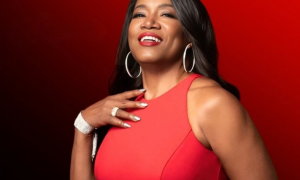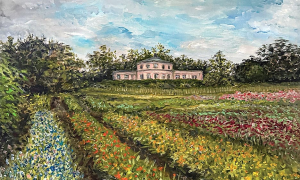If there's any doubt about the country's influence, try listening to Brubeck's “Tokyo Traffic" in the middle of Shinjuku, or his “Zen is When" in Yoyogi Park. If that fails to do the job, take Horace Silver's “Too Much Sake" with you next time you go to an izakaya. In fact, for some jazz pioneers, performance tours of Tokyo's music clubs alone are not enough. American saxophonist Kenny Garrett not only composed jazz charts based on his Japanese experiences, but even returned here to study Japanese.
But it's not just jazz legends who find a haven of opportunity in Tokyo. Away from the celebrity circuit of the city's internationally famous venues, jazz thrives in smaller back-alley clubs, while Tokyo's most fashion-conscious hotels and restaurants are now awash with foreign musicians.
Garrison Davis has performed all over the world, but his 10 years in Japan have taught him that, unlike other major jazz hubs, there's enough work in Tokyo that the traditional image of a penniless musician artiste forging their way in a foreign land doesn't always apply.
“There is no gray area back in New York," he says. “Over there, you are either in the circuit, with a hit record and a famous name, or you are not. In Tokyo, there is such a passionate public interest about going out to see live music, that as long as you are a good entertainer, you can still do well, even without any fame."
Tokyo is now a regular stop on the world tours of jazz legends, but if you're interested in discovering the true soul of Tokyo jazz, head off the beaten track and brace yourself for a long night where the music matters much more than the menu and the view. With the arrival and success of more and more foreign musicians, the underground jazz scene of hidden bars and clubs is increasingly opening up for exploration, and once you make your way in, you know that you are in Japan, and nowhere else.
For more information contact All About Jazz.






![Full Moon [Feat. New York Voices, Mark Egan]](https://s3.amazonaws.com/allaboutjazz/coverart/large/a07a6f1d5edcd6c801f0e1c3b527da37.jpg)



















